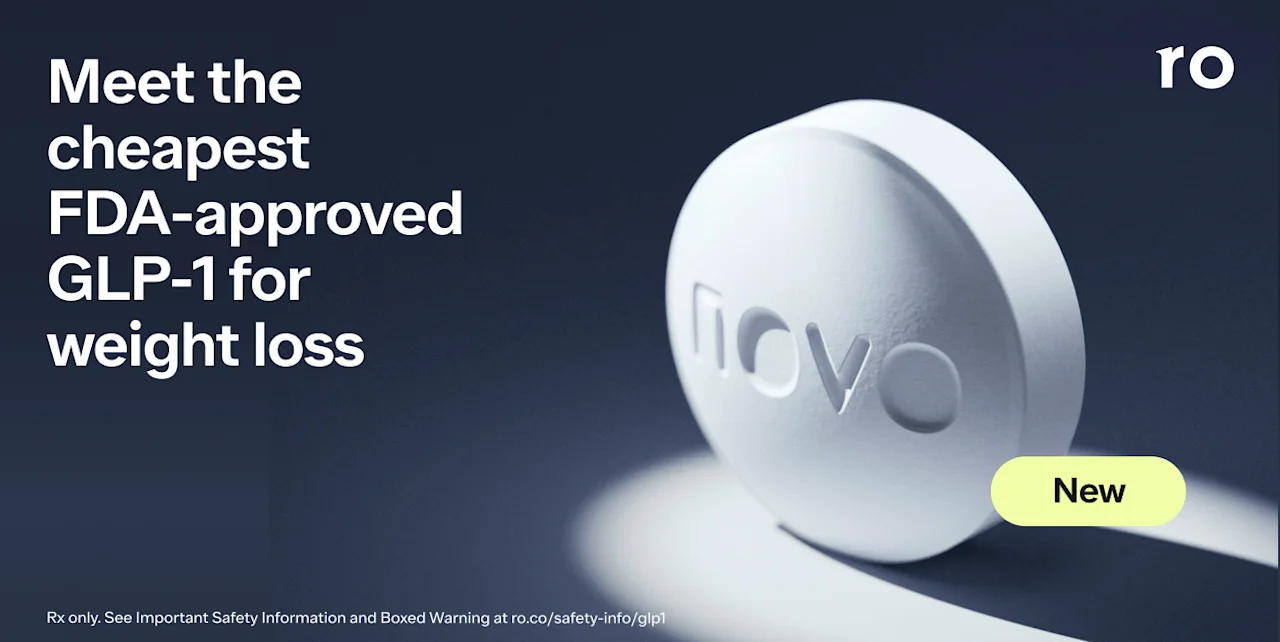Key takeaways
Insurance coverage for Zepbound depends on the details of your specific plan, including your deductible and copay amounts.
Generally, government-funded insurance plans may be less likely to cover Zepbound. Zepbound coverage through commercial insurance plans can vary.
If your plan does offer coverage for Zepbound, prior authorization is typically required.
Here's what we'll cover
Key takeaways
Insurance coverage for Zepbound depends on the details of your specific plan, including your deductible and copay amounts.
Generally, government-funded insurance plans may be less likely to cover Zepbound. Zepbound coverage through commercial insurance plans can vary.
If your plan does offer coverage for Zepbound, prior authorization is typically required.
The US Food & Drug Administration approved Zepbound (tirzepatide) for weight loss in 2023. Since then, the medication has been making waves for its impressive weight loss results — up to 20.9% in a year and a half.
Due to its popularity, it’s no surprise that many people are asking, “Is Zepbound covered by insurance?”
If you’re considering taking Zepbound for weight loss, you’re probably wondering how much you’ll have to pay out-of-pocket, and how much you can expect your insurance to cover. Read on as we navigate the current state of insurance coverage for Zepbound.
Does insurance cover Zepbound?
It depends. Whether your insurance covers Zepbound will depend on your specific insurance plan’s prescription drug benefits. As a newer and fairly expensive weight loss medication, insurance coverage for Zepbound isn’t always guaranteed. Sometimes, it takes insurance companies a bit to catch up and cover new prescription drugs. And sometimes, even when they do cover them, the newer, more expensive drugs (like Zepbound) can have higher out-of-pocket costs.
The best way to know for sure if your insurance covers Zepbound is to contact your insurance company. You can call them using the phone number listed on the back of your insurance card.
You may also be able to review your plan’s drug formulary on the plan’s website. This lists all of the drugs covered by your plan, along with the drug tier they are in. The drug tier helps you estimate how much you’ll have to pay for Zepbound. Generally, drugs in lower tiers have lower copays and out-of-pocket costs than drugs in higher tiers.
And last, but certainly not least, you can also use Ro’s GLP-Insurance Coverage Checker, a free and accessible online tool. Simply fill out the form with the information on your insurance card, and Ro will send you a free, personalized coverage report based on their conversation with your plan.
What insurance companies cover Zepbound?
Again, it depends. Although times are changing, insurance companies have historically been less likely to cover weight loss medications.
Today, government-funded insurance plans are still unlikely to cover weight loss medications. For example, Medicare does not currently cover Zepbound, although Congress has proposed bills to expand Medicare coverage to include weight loss drugs. Medicaid coverage varies by state, so it is possible your state may offer coverage for Zepbound. Check your state’s preferred drug list to be sure.
If you have health insurance through the VA (Veterans Affairs), Zepbound may be covered under the MOVE! Weight Management Program. Talk to your VA benefits provider for details. TRICARE may also cover Zepbound in certain situations, although prior authorization is required.
Employer-sponsored insurance plans — such as Aetna, Blue Cross Blue Shield, Cigna, and others — can vary in their coverage of Zepbound. These plans are not required to offer prescription drug coverage, and even if they do, employers may create their own formulary that differs from the standard options offered by the insurance company. To determine if your insurance covers Zepbound, call the number on the back of your insurance card or talk to your employee benefits coordinator.
Typically, insurance plans require prior authorization for Zepbound. Some plans may even have a separate prior authorization form for weight loss medications like Zepbound, as Blue Cross Blue Shield of Massachusetts does for some of its HMO, PPO, and Indemnity plans. This means that your healthcare provider will need to submit a form on your behalf to your insurance company before they will agree to cover the medication.
“Often, [the insurance company] asks for confirmation that the patient has tried diet and exercise previously or plans to continue lifestyle therapies along with the anti-obesity medication,” shares Beverly Tchang, MD, an endocrinologist and an advisor to Ro. “Some prior authorizations will ask for a list of prior anti-obesity medications that have been tried.”
Additionally, your healthcare provider will need to confirm that you meet the eligibility criteria for Zepbound, Dr. Tchang says. For Zepbound, that means that you fall under the FDA-approved indications and uses.
The FDA has approved Zepbound for use in combination with diet and exercise in adults with:
Overweight or obesity and a weight-related health condition, such as high blood pressure, high cholesterol, type 2 diabetes, obstructive sleep apnea, or heart disease
Obesity and moderate to severe obstructive sleep apnea (OSA)
Specific body mass index (BMI) is not specified in the prescribing information for Zepbound. But insurance companies often require proof that you meet BMI criteria for obesity or overweight with a qualifying medical condition before approving coverage. So, it can be helpful to know the following:
Obesity: BMI of 30 or higher
Overweight: BMI of 25–29.9 (though insurance companies don’t tend to cover GLP-1s for patients with a BMI of 25–26.9)
Prior authorization can be required for medications that are more expensive or aren’t considered “first-line” options. In the case of Zepbound, first-line options might be diet and exercise or other, more affordable medications for weight loss. On the prior authorization form, your healthcare provider will attest that you have tried these other options already and need a more effective treatment for weight management.
Eli Lilly offers a Prior Authorization Resource Guide for Zepbound on its website to help healthcare providers with this process.
How much is Zepbound with insurance?
If you have insurance coverage for Zepbound, the amount you pay for Zepbound will depend on the specific coverage details of your plan, including your deductible and the copay associated with Zepbound’s drug tier.
With some insurance plans, you may only have to pay a copay for Zepbound. With others, you may need to meet a deductible first, which means you’ll pay full price for Zepbound until you reach your deductible. To get a better estimate of your total costs for Zepbound, contact your insurance provider.
If you have commercial insurance (either through your employer or purchased on your own), you may be eligible for the Zepbound Savings Card — even if your plan doesn’t provide specific coverage for Zepbound. Here are the expected costs of Zepbound with the savings card, depending on your insurance coverage:
For those with coverage for Zepbound: The savings offer can bring the cost of a one-month or three-month supply of Zepbound down to as little as $25. The maximum savings are up to $150 for a one-month prescription, $300 for two-month prescription, and $450 for a three-month prescription, or up to $1,950 per calendar year.
For those without coverage for Zepbound: The Zepbound savings offer can bring the cost of a one-month supply down to as low as $449. The maximum savings with the card are up to $6,097 per calendar year.
People with government-funded insurance are not eligible for the program. This includes state and federal healthcare plans like Medicaid, Medicare, Medigap, DoD, VA, and TRICARE.
How much is Zepbound without insurance?
Without insurance, the list price of Zepbound is $1,086.37 for a one-month supply. The list price is set by the manufacturer (in this case, Eli Lilly) and does not take into account any markups or discount programs offered by a pharmacy.
What if my insurance won’t cover Zepbound?
If your insurance won’t cover Zepbound, you still have options for reducing the cost you pay at the pharmacy. For example:
Patient Assistance Programs (PAP): Drug manufacturers offer PAPs to provide their medications at low or no cost to people who need financial assistance. Eli Lilly’s Lilly Cares Foundation does not currently include Zepbound as one of its covered medications, but that may change. You can contact The Lilly Answers Center Monday–Friday at 1-800-Lilly-Rx (1-800-545-5979) to see if you qualify for any other financial assistance programs.
Zepbound Savings Card: As we mentioned above, if you have commercial insurance, you may be eligible for the Zepbound Savings Card, which can significantly reduce the cost of Zepbound for those who qualify.
Pharmacy discount programs: Websites like Drugs.com, OptumPerks, and GoodRx offer discount cards for individual pharmacies, which may help you save on the cost of Zepbound.
HSA or FSA funds: If you have a health savings account (HSA) or flexible spending account (FSA), you may be able to use those funds to help pay for Zepbound.
Single-dose vials: All six dosage strengths of Zepbound are available in single-dose vials, which can be a less expensive option compared to the pens for those who are paying out of pocket. If appropriate, you can get a four-week supply of single-dose vials of Zepbound through Ro at the following cash prices: $299/month for the 2.5 mg dose, $399/month for the 5 mg dose, $449/month (with manufacturer offer) for the 7.5 mg, 10 mg, 12.5 mg, and 15 mg doses.
Zepbound alternatives: Even if your insurance does not cover Zepbound, it may cover an alternative medication for weight loss, such as Wegovy (semaglutide) or Saxenda (liraglutide).
Bottom line
Zepbound can be expensive, but you have options for reducing your out-of-pocket cost. Talk to your healthcare provider about your options. And here’s what to keep in mind when heading into that discussion:
Insurance coverage for Zepbound varies by plan. Because it’s a newer weight loss medication, coverage isn’t guaranteed and out-of-pocket costs may be higher.
To determine if your insurance covers Zepbound, call your insurer using the number on your card, check your plan’s online drug formulary, or use Ro’s free and easy insurance checker.
Many insurance companies require prior authorization for Zepbound, meaning your healthcare provider must submit documentation showing you meet your insurer’s criteria.
Without insurance, Zepbound costs $1,059.87, but the exact amount you may pay depends on your insurance coverage (if any), preferred pharmacy, and any discounts or coupons.
You can lower the cost of your Rx by using the Zepbounds Savings Card, if eligible, or pay with cash for Zepbound vials through Ro. If you choose the latter, you can get Zepbound for $299–$449 per month, depending on the dose.
DISCLAIMER
If you have any medical questions or concerns, please talk to your healthcare provider. The articles on Health Guide are underpinned by peer-reviewed research and information drawn from medical societies and governmental agencies. However, they are not a substitute for professional medical advice, diagnosis, or treatment.
Zepbound Important Safety Information: Read more about serious warnings and safety info.
Wegovy Important Safety Information: Read more about serious warnings and safety info.
Saxenda Important Safety Information: Read more about serious warnings and safety info.
References
Blue Cross Blue Shield of Massachusetts. (2024). Pharmacy Medical Policy Drugs for Weight Loss and Cardiovascular Risk Reduction in Overweight and Obesity. Retrieved from https://www.bluecrossma.org/medical-policies/sites/g/files/csphws2091/files/acquiadam-assets/572%20Drugs%20for%20Weight%20Loss%20prn.pdf
EatRightPRO. (2024). Treat and Reduce Obesity Act. Academy of Nutrition and Dietetics. Retrieved from https://www.eatrightpro.org/advocacy/initiatives/treat-and-reduce-obesity-act
Eli Lilly-a. (2024). Available Medications | Lilly Cares. Retrieved from https://www.lillycares.com/available-medications
Eli Lilly-b. (2024). Contact Us. Retrieved from https://www.lilly.com/contact-us
Eli Lilly. (2023). FDA Approves Lilly's Zepbound™ (tirzepatide) for Chronic Weight Management, a Powerful New Option for the Treatment of Obesity or Overweight with Weight-Related Medical Problems. Lilly Investors. Retrieved from https://investor.lilly.com/news-releases/news-release-details/fda-approves-lillys-zepboundtm-tirzepatide-chronic-weight
Eli Lilly-c. (2024). Prior Authorization Resource Guide. Retrieved from https://zepbound.lilly.com/assets/pdf/zepbound_Prior_Authorization_Resource_Guide.pdf
Eli Lilly-d. (2024). Savings Card, Cost & Coverage Support | Zepbound (tirzepatide). Retrieved from https://zepbound.lilly.com/coverage-savings
Internal Revenue Service (IRS). (2023). Frequently asked questions about medical expenses related to nutrition, wellness, and general health. Retrieved from https://www.irs.gov/individuals/frequently-asked-questions-about-medical-expenses-related-to-nutrition-wellness-and-general-health
Jastreboff, A. M., Aronne, L. J., Ahmad, N. N., et al. (2022). Tirzepatide Once Weekly for the Treatment of Obesity. The New England Journal of Medicine, 387(3), 205–216. doi: 10.1056/NEJMoa2206038. Retrieved from https://www.nejm.org/doi/10.1056/NEJMoa2206038
TRICARE. (2024). Prescription Drugs. Retrieved from https://www.tricare.mil/CoveredServices/Pharmacy/Drugs
U.S. Food & Drug Administration (FDA). (2025). Highlights of Prescribing Information: Zepbound (tirzepatide) Injection, for subcutaneous use. Retrieved from https://www.accessdata.fda.gov/drugsatfda_docs/label/2025/217806s031lbl.pdf
VA Pharmacy Benefits Management Services, Medical Advisory Panel, & VISN Pharmacist Executives. (2024). Weight Management Medications for Chronic Use. Retrieved from https://www.va.gov/formularyadvisor/DOC_PDF/CRE_Weight_Management_Medications_Guidance_Rev_Jan_2024.pdf














